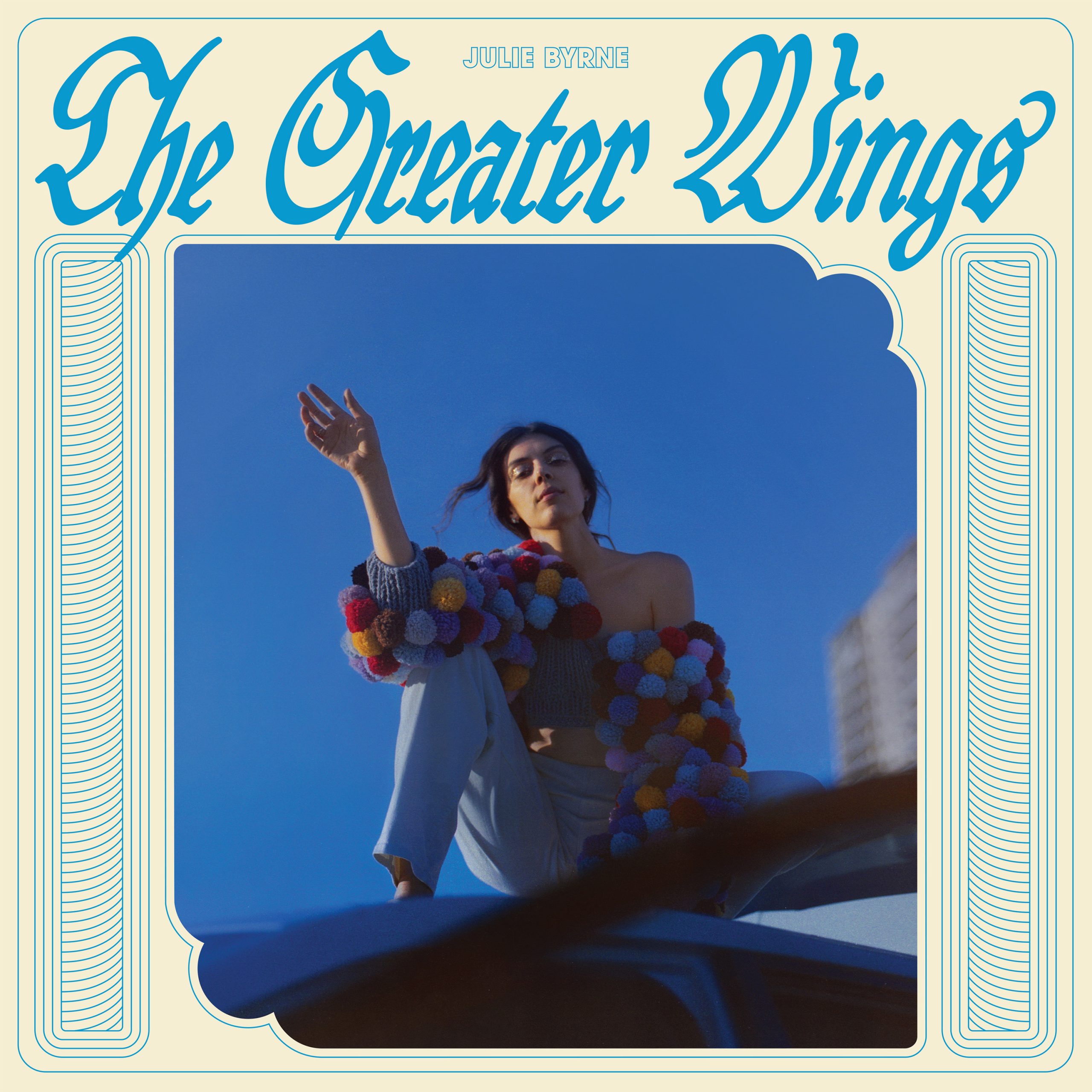
By the time Julie Byrne reaches “Hope’s Return,” the penultimate track on her new album The Greater Wings, she’s been through a lot. She has meditated on friends, and friends dying, and life blurring by, and the tiny but momentous occasions that give us some sense of meaning. “I need walks long enough/ To free me from my mind/ A sense of horizon,” she sings. There was a lot about this album that could’ve destroyed a person, but Byrne’s still finding possibility. At the song’s conclusion, she communicates that with a quiet, stormy catharsis — rendered, like the rest of the album, with an intimate sense of grandeur.
Six long years have passed since Byrne’s last album, 2017’s Not Even Happiness. That collection served as Byrne’s breakthrough, elevating her searching folk music beyond the DIY rooms in which she’d cut her teeth. That alone was a jarring, unexpected experience, one that took some acclimating. Ideas for a followup percolated before the pandemic, but work began in earnest in the fall of 2020. After riding out the initial lockdown era in Los Angeles, Byrne left for Chicago to join her collaborator Eric Littmann. Following those autumn sessions, they reconvened in New York in the spring of 2021 for another session. Then, Littmann suddenly died in June of 2021.
In the wake of losing Littmann, Byrne stopped working on The Greater Wings for six months, until she and her other collaborators took it to producer Alex Somers, recording in an actual studio for the first time ever. While The Greater Wings existed in some form before Littmann’s death, it was completed in the throes of grief. The album is inextricable from that context, and it lends each of Byrne’s words a striking poignance. She answers loss not with a document of overwhelming sorrow, but a tribute and renewed commitment to human connection.
Littmann and Byrne had a long, profound relationship. They met at SXSW in 2014 and connected immediately; they soon became a couple, then friends, and continued working closely on Byrne’s music. Anytime Byrne talks about his passing, it’s almost less about the disorientation of losing an artistic partner and more like a whole part of her was cut away. The gravity manifests early on, in the album’s title track and opener: “Name my grief to let it sing/ To carry you up on the greater wings.” You get the sense that completing this music was partially a way of honoring Littmann’s memory, what he and Byrne had made together.
Unsurprisingly, their collaboration had extended from Not Even Happiness to another set of songs that are soul-crushingly beautiful. Byrne’s voice remains a transfixing instrument; she has a strange ability to sound celestial while letting you hear the grain in her intonations as if she is right in the room with you. From the opening notes of “The Greater Wings,” Byrne is once more carried on her gorgeous guitar playing, but she also began writing on piano. In songs like “Lightning Comes Up From The Ground,” Jake Felby’s string arrangements give Byrne’s personal accounts a cinematic scope.
The Greater Wings is still a gentle, often hushed album, but it feels fuller and lusher than its predecessor. Littmann and Byrne pushed further into experiments that began on Not Even Happiness, with Littmann’s synths providing a crucial backdrop throughout, but especially on “Conversation Is A Flowstate,” a reckoning with an unhealthy, lopsided relationship. One of the album’s most powerful moments arrives in “Summer Glass,” with Byrne singing over synth arpeggiations alongside Marilu Donovan’s harp. In the most sonically artificial track on the album, Byrne’s music is elemental — the song sounds like the sea and the sky above it, like those horizons Byrne sought.
That sense of expansiveness runs through the album. In “Moonless,” Byrne finds “whatever eternity is” while lying with someone in a hotel room. The grief she sings about on “The Greater Wings” to keep Littmann’s memory alive carries forward elsewhere, arriving at little revelations and moments of solace: “It was slow, true and tried/ What we’ve known/ I carry that through time/ Love affirms the pain of life” in “Portrait Of A Clear Day,” or “I can’t say if it was devotion/ I just wanted to feel the sun on my skin” in “Summer Glass.” Later in that song, she continues: “You are the family that I chose.” The line lands like an answer to the grief trickling through the rest of the album — navigating a devastating absence and responding by holding the relationships we have nearer, realizing that sometimes all we have is the people around us and the stories we can tell while we’re here.
On so much of The Greater Wings, Byrne takes such inherently human tribulations and makes them resonate on a cosmic level. She almost speaks to herself across the album. “Does my voice echo forward?/ Alive if only for a speck/ My actions are all that I possess,” she sings in closer “Death Is The Diamond.” But then it circles back to the beginning of “The Greater Wings,” to the wound that aches across the album and Byrne talking about unknown galaxies moving out of sight, with no care for us, and concluding: “I’m not here for nothing.”
The Greater Wings is out 7/7 on Ghostly International.


 47
47